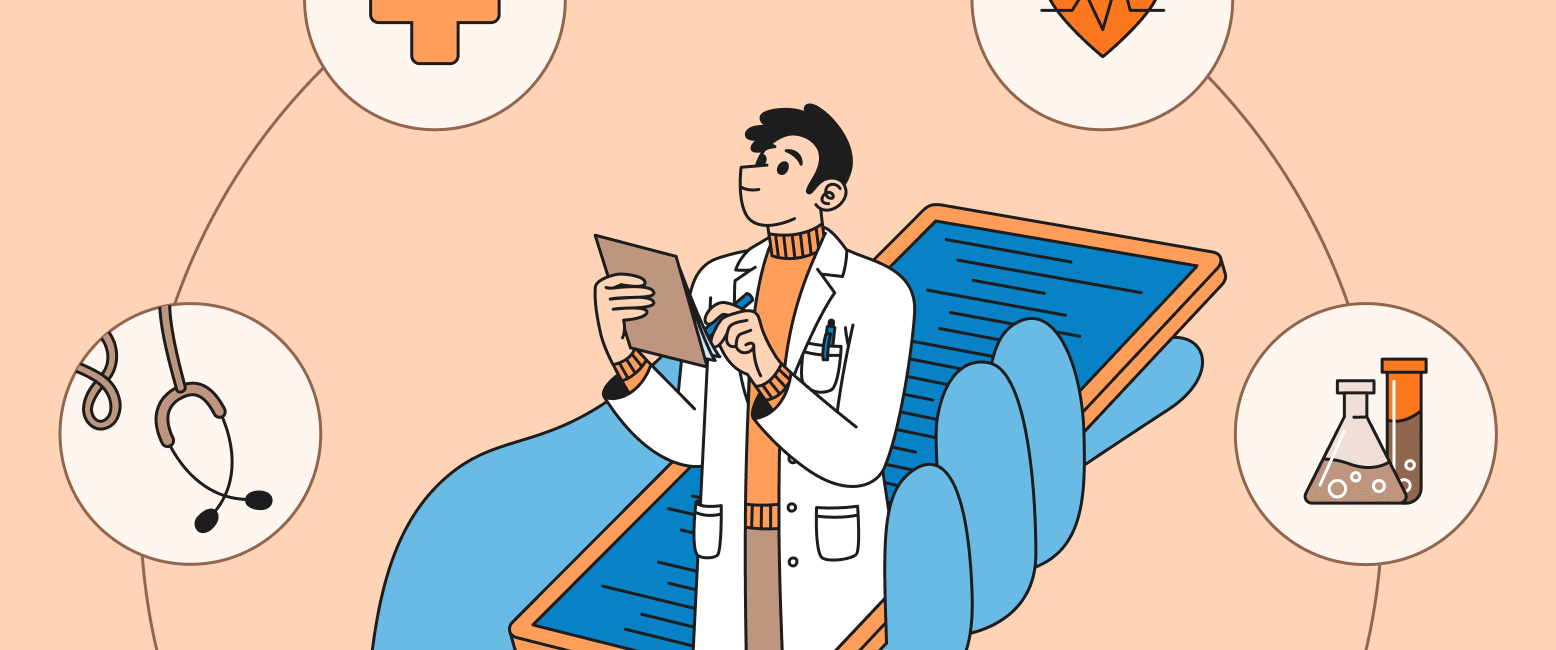
In 2025, healthcare mobile apps are playing a pivotal role in transforming patient care and clinical operations. Driven by cutting-edge technologies such as Artificial Intelligence (AI), the Internet of Things (IoT), and telemedicine, these apps are making healthcare more accessible, personalized, and efficient than ever before. Through intelligent automation, predictive analytics, and real-time patient monitoring, AI healthcare app development services are empowering medical institutions to deliver smarter, data-driven care solutions. From early diagnosis to remote consultations and personalized treatment recommendations, these innovations are redefining how patients and providers interact in the digital health ecosystem.
AI in Healthcare Apps
AI integration is revolutionizing healthcare by enhancing diagnostics, automating administrative tasks, and personalizing treatment plans. AI-powered symptom checkers and virtual assistants provide patients with instant medical guidance, reducing delays and improving outcomes. Advanced predictive analytics enable early disease detection, while AI chatbots offer 24/7 support, significantly boosting patient engagement and satisfaction. Furthermore, AI streamlines hospital workflows, reducing errors and optimizing resource use.
IoT and Remote Health Monitoring
The Internet of Medical Things (IoMT) connects medical devices and healthcare systems, allowing seamless real-time data collection and sharing. Wearable devices and remote monitoring tools enable continuous health tracking, empowering patients with chronic conditions to manage their health proactively. IoT facilitates personalized care by providing actionable insights from continuous data streams, helping healthcare providers intervene promptly to prevent complications. This technology also reduces hospital readmissions and enhances the efficiency of healthcare delivery, especially in remote or underserved regions.
Telemedicine Innovations
Telemedicine applications have surged in adoption, offering virtual doctor consultations via video and audio calls. They break down geographic barriers, enabling patients in rural areas to access quality care conveniently. In 2025, telemedicine apps will increasingly incorporate AI and 5G technology, making remote consultations more efficient, reliable, and interactive. Features like AI-based clinical transcription, symptom triage, and diagnostic assistance improve care accuracy. Telemedicine not only reduces healthcare costs by cutting down on travel and hospital visits but also expands overall healthcare access and provider reach.
Additional Trends Enhancing Healthcare Apps
- Gamification techniques in apps encourage patient adherence to treatment plans through rewards and progress tracking.
- Blockchain technology enhances data security and compliance with regulations like HIPAA and GDPR, ensuring patient data privacy.
- Personalized health insights based on patient habits and medical history empower users to take control of their wellness.
- Portable and AI-enabled devices improve early diagnosis and hospital operation optimizations.
Market Impact:
The mHealth market is expected to grow substantially, reaching approximately $81.7 billion in 2025, with projections to surge further. These innovations contribute to improved patient engagement by up to 50% and reduce hospital readmission rates by nearly 30%, reflecting their effectiveness in improving healthcare outcomes.
Conclusion
In conclusion, the healthcare mobile app landscape in 2025 is being fundamentally reshaped by breakthroughs in AI, IoT, and telemedicine. These technologies are not only enhancing remote patient monitoring and enabling virtual care but are also driving personalized, data-driven treatment approaches. As digital healthcare tools become increasingly sophisticated and accessible, they hold immense potential to improve healthcare outcomes, reduce costs, and expand access—especially for underserved populations. For healthcare providers and app developers, staying ahead of these trends is crucial to delivering innovative, patient-centric solutions in an ever-evolving digital ecosystem. The future of healthcare is connected, intelligent, and accessible to all, making 2025 a landmark year for mobile health innovation.

